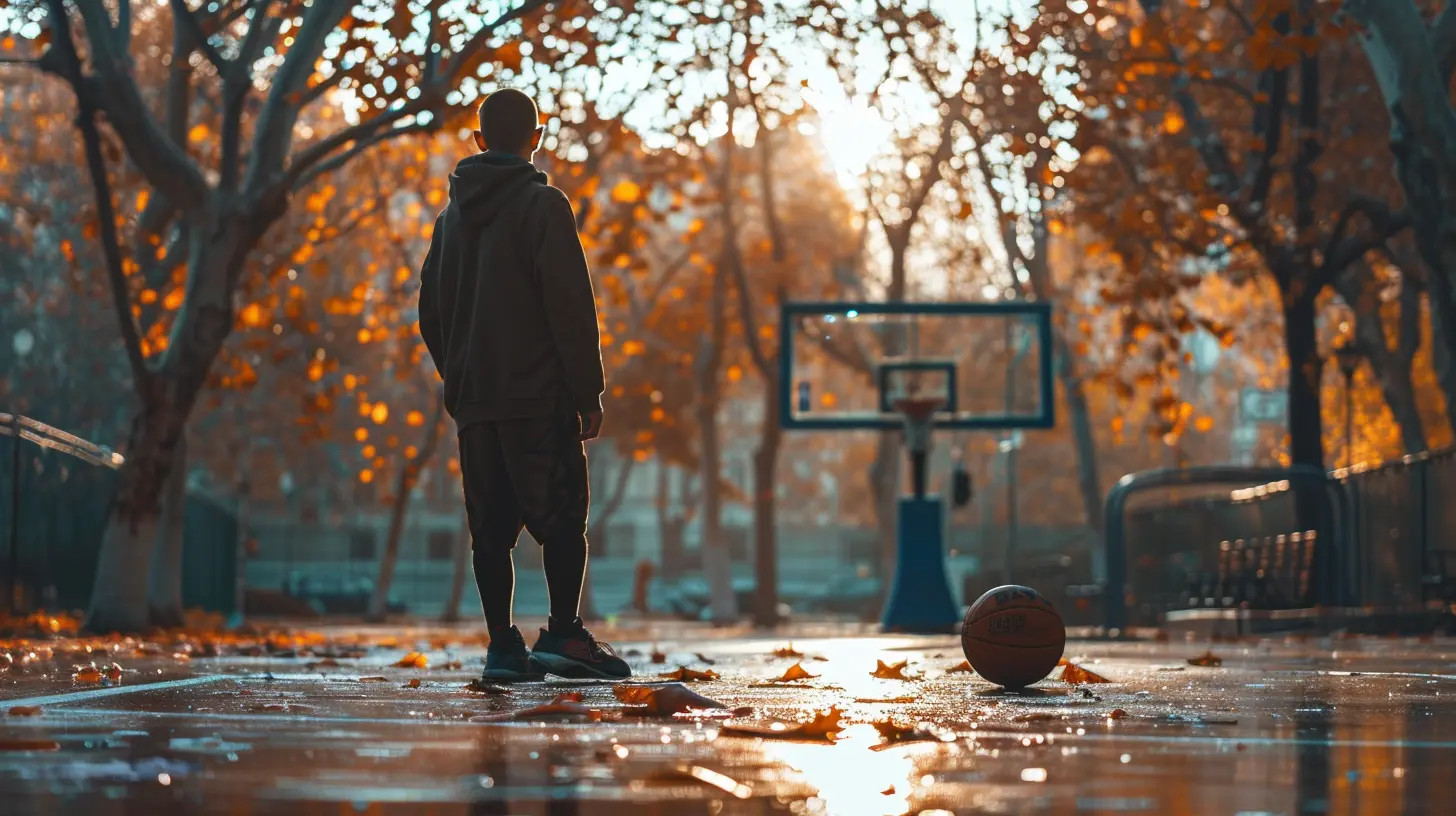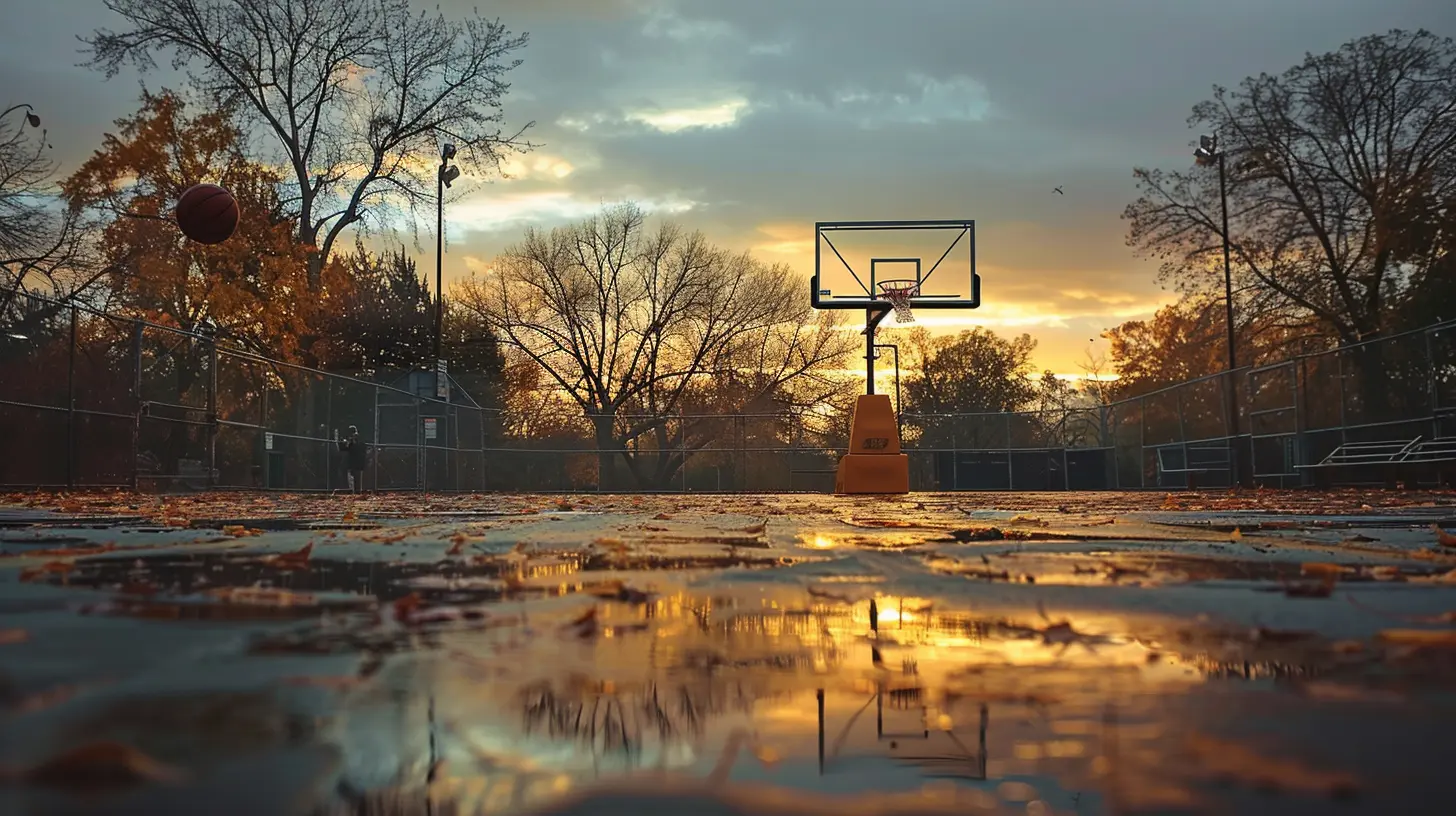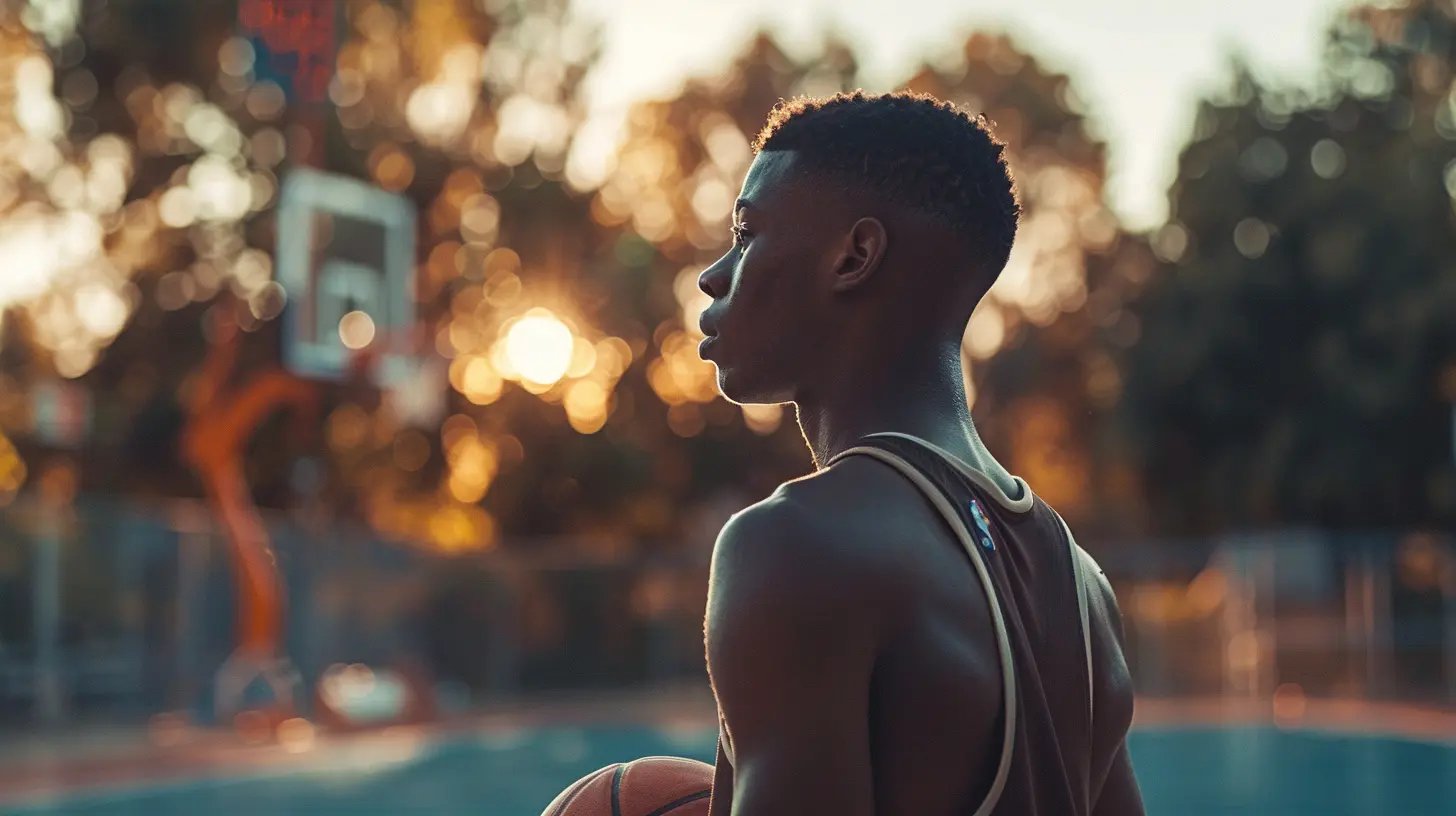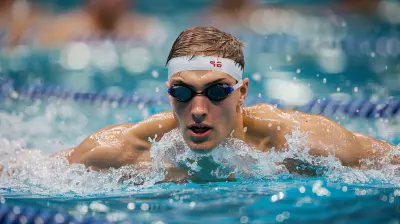Why Free Throw Shooting Can Make or Break Your Game
19 December 2024
Basketball is a fast-paced, dynamic sport that hinges on a player’s ability to make quick decisions, move with agility, and shoot under pressure. While flashy dunks, three-pointers, and fast-break plays often steal the spotlight, there's one often-overlooked skill that can make or break a game: free throw shooting.
I know, free throws might not be the most exciting part of basketball. But if you really think about it, free throws are one of the purest forms of shooting. There's no defender in your face, no need to worry about shot clocks or teammates cutting to the rim. It's just you, the hoop, and the ability to perform under pressure. And that’s exactly what makes free throw shooting so critical.
Let's break down why this seemingly simple part of the game holds so much weight and how it can either elevate your game or sink it.

The Importance of Free Throws in Basketball
Free throws can be the difference between winning and losing, especially in close games. According to NBA statistics, around 25% of all points in a game come from free throws. Let that sink in for a second. A quarter of the game’s points are coming from a skill that many players and fans overlook.In tight games, where every possession counts, missing even one free throw can be the difference between a win and a loss. Imagine your team is down by one point with just a few seconds left on the clock. You get fouled and are sent to the free-throw line. The pressure’s on. Make both and you win the game. Miss one, and it's overtime or worse—your team loses.
This isn’t just hypothetical either. There have been countless examples of games being decided at the free-throw line. Just ask any coach or player—they'll tell you how crucial making free throws is, especially in those clutch moments.
Free Throws: The Mental Battle
Free throws aren't just about mechanics and muscle memory. They're a mental game too. There’s no denying that the pressure can get to you, especially when the game is on the line. It’s just you staring down the hoop while thousands of fans scream at you, or worse, stare in dead silence.This is where mental toughness comes into play. Free throws test a player’s ability to block out distractions and focus on the task at hand. It’s not easy to maintain composure when the entire arena is waiting to see if you’ll make or miss. But great players do just that—they thrive under pressure.
Take players like Stephen Curry or Ray Allen, both known for their shooting prowess, not only from beyond the arc but also at the charity stripe. These guys didn’t just rely on talent. They worked tirelessly to perfect their free-throw shooting to the point where it became automatic, even in the most nerve-wracking situations.

How Bad Free Throw Shooting Can Hurt Your Team
Free throws aren’t just about individual stats. Missing free throws can have a ripple effect on your entire team. Let’s break down how:Lost Points Add Up
Every missed free throw is a missed opportunity. A point here, a point there, and suddenly, those missed free throws add up—especially in games that are decided by a few points. Imagine missing 5 or 6 free throws in a game. That’s essentially giving away 5 or 6 possessions, which can be the difference between winning comfortably or losing by a razor-thin margin.Momentum Killer
Basketball is a game of runs. Teams feed off momentum—whether it’s a big dunk, a three-pointer, or a defensive stop. But nothing kills momentum faster than missed free throws. Say your team is on a 10-0 run, crushing it on both ends of the floor. You get fouled and head to the line. A couple of missed free throws can take the wind out of your team’s sails and give your opponents a chance to regroup.Fouling Strategy
Poor free throw shooting can also make you a target. No one wants to be on the receiving end of a "Hack-a-Shaq" strategy. For those unfamiliar, this strategy involves intentionally fouling a poor free-throw shooter to send them to the line in hopes they’ll miss, allowing the opposing team to regain possession. If you’re known as a bad free throw shooter, don’t be surprised if teams start to exploit this weakness.Shaquille O'Neal, Dwight Howard, and Andre Drummond are prime examples of dominant players who struggled at the free-throw line. Despite being game-changers on the court, their poor free-throw shooting allowed opposing teams to neutralize their strengths.

Why Good Free Throw Shooting Can Elevate Your Game
Free throw shooting, when done well, can be a massive asset. Here’s how becoming a reliable free throw shooter can elevate both your personal game and your team's performance.Boost Your Scoring Average
It’s simple math: the more free throws you make, the more points you score. And since free throws are, well, free, they’re one of the easiest ways to boost your scoring average. Great scorers like Michael Jordan, Kobe Bryant, and James Harden mastered the art of drawing fouls and capitalizing at the free-throw line. This allowed them to rack up points even when their shooting wasn’t falling from the field.Earn Respect from Defenders
Defenders know who the good free-throw shooters are, and they’re less likely to foul them. If you’re a deadly free-throw shooter, defenders have to play you more cautiously, giving you more room to operate offensively. Essentially, if they know you’ll make them pay at the line, they’ll think twice before hacking you on a drive to the basket.Clutch Performance
Nothing says "clutch player" quite like knocking down free throws when the game is on the line. Being able to perform in crunch time is what separates good players from great ones. If you want to be the guy your team looks to in those final moments, you need to be able to step up and knock down your free throws.
Improving Your Free Throw Shooting
So, how do you get better at free throws? It’s not rocket science, but it does require dedication, discipline, and focus. Here are a few tips to help you become a more consistent shooter at the line:Develop a Routine
Watch any great free-throw shooter, and you’ll notice that they have a specific routine they follow before every shot. Whether it’s a certain number of dribbles, taking a deep breath, or spinning the ball, having a routine helps you get into a rhythm. It also gives you something to focus on, which can help block out the crowd and pressure. Find what works for you and stick to it.Practice, Practice, Practice
There’s no shortcut to becoming a great free-throw shooter. It all comes down to repetition. The more you practice, the more comfortable you'll become at the line. Aim to shoot hundreds of free throws each week. And don’t just practice when you’re fresh—try shooting free throws when you’re tired, just like you would be in a game.Focus on Mechanics
Good free-throw shooting starts with solid mechanics. Your shooting form should be consistent, with a smooth motion and proper follow-through. Keep your elbow in, use your legs for power, and snap your wrist for that perfect rotation. If you're struggling, consider working with a coach to fine-tune your technique.Stay Mentally Tough
As we mentioned earlier, free throws are as much a mental challenge as they are a physical one. Work on staying cool under pressure. Visualize yourself making the shot before you take it. When you miss, don’t dwell on it—just move on to the next shot. The best free-throw shooters have short memories; they focus on the next opportunity, not the last miss.The Bottom Line: Free Throws Matter
At the end of the day, free throws are a fundamental part of basketball that often goes underappreciated. Whether you love them or hate them, free throws have the power to make or break your game. They can win championships, swing momentum, and define careers. From a team perspective, every missed free throw is a potential point left on the court. From an individual standpoint, being a reliable free-throw shooter can set you apart and make you a more valuable asset to your team.So, the next time you're at the gym working on your shooting, don’t just focus on the three-pointers and fadeaway jumpers. Take the time to master your free throws. They might not be glamorous, but they can be the key to unlocking your full potential on the court.
all images in this post were generated using AI tools
Category:
BasketballAuthor:

Easton Simmons
Discussion
rate this article
20 comments
Quade Cantu
This article beautifully captures the essence of free throw shooting in basketball. It’s often the most overlooked skill, yet it carries the weight of a game. Mastering those moments can truly define a player's journey. Embracing the pressure and focusing on precision can elevate the entire team's performance. Great read!
March 29, 2025 at 12:36 PM

Easton Simmons
Thank you for your thoughtful comment! I'm glad you enjoyed the article and appreciate the significance of free throw shooting in the game.
Kai Warren
In the silent tension of the free throw line, a single moment can shift destinies. Will the pressure forge a hero or expose a flaw? Unravel the hidden depths of this pivotal skill.
January 30, 2025 at 4:39 AM

Easton Simmons
Absolutely! Free throw shooting is crucial—it not only impacts the score but also tests a player's mental resilience under pressure. It's a defining moment that can elevate or undermine performance.
Remington Pope
Master free throws, and watch your confidence and game soar!
January 26, 2025 at 5:21 AM

Easton Simmons
Absolutely! Mastering free throws not only boosts your scoring but also enhances your overall confidence on the court. It's a game-changer!
Harvey Wells
Free throws: the ultimate test of coolness under pressure! It's like a game of 'will they, won't they' with the hoop. Nail that shot, and you’re a hero; miss it, and you’re just one more sad balloon at a child's party! 🏀🎈
January 21, 2025 at 5:44 AM

Easton Simmons
Absolutely! Free throws really do encapsulate the pressure of the game—every shot counts, and the stakes couldn't be higher! 🏀
Cassidy Maddox
Free throws are crucial; they can turn a game around in seconds.
January 12, 2025 at 1:33 PM

Easton Simmons
Absolutely! Free throws can be game-changers, often deciding tight matches in critical moments.
Zephyra Summers
Free throw shooting is crucial; it can turn the tide in tight games. Mastering this skill can elevate a player's performance and secure victory when it matters most.
January 9, 2025 at 6:01 AM

Easton Simmons
Absolutely! Free throw shooting is essential in high-pressure moments, and mastering it can be a game-changer for any player.
Uriel Simon
Intriguing perspective! It's fascinating how such a simple skill can hold so much power in determining a game's outcome. Thoughts?
January 4, 2025 at 1:14 PM

Easton Simmons
Thank you! It's true—free throw shooting can be the deciding factor in close games, highlighting the importance of mental focus and practice in mastering this fundamental skill.
Fenn McAleer
Free throw shooting isn’t just a skill; it's a mindset. Every shot is a chance to seize the moment and elevate your game. When the pressure mounts, it’s the calm confidence at the line that defines champions. Master this art, and you hold the power to transform your destiny!
December 31, 2024 at 5:24 AM

Easton Simmons
Absolutely! Free throw shooting embodies both skill and mental fortitude, playing a crucial role in determining game outcomes. Mastering this can truly elevate a player's performance under pressure.
Lilith McManus
Free throws are the ultimate test of a player’s mental fortitude. Mastering them can elevate your game; neglecting them? Prepare for defeat. Simple as that.
December 29, 2024 at 5:29 AM

Easton Simmons
Absolutely! Free throws are crucial for a player's mental resilience and can significantly impact the game's outcome. Mastery in this area is essential for success.
Lyanna Hudson
Like a cat on a hot tin roof, free throws can swing a game! Nail those shots, and you’re a hero; miss, and you might as well be juggling watermelons!
December 26, 2024 at 7:47 PM

Easton Simmons
Absolutely! Free throws are pivotal; they can turn the tide of a game in an instant. Every shot counts!
Melanie Dorsey
Free throw shooting epitomizes a player’s mental fortitude and precision under pressure. Often underestimated, these shots can shift momentum and determine game outcomes. Mastering them not only boosts individual stats but also enhances team confidence, proving that moments at the line can define a season’s success.
December 23, 2024 at 8:28 PM

Easton Simmons
Absolutely! Free throw shooting is crucial; it reflects a player's mental strength and can significantly impact game dynamics and overall team success.
Priscilla McSweeney
Free throw shooting is crucial; it can swing momentum and influence game outcomes. Consistent practice can elevate a team's performance significantly.
December 22, 2024 at 3:48 AM

Easton Simmons
Absolutely! Free throw shooting is a game-changer, and consistent practice is key to harnessing its potential for victory.
Eliana McEachern
Great insights! Free throw shooting truly highlights the mental side of the game. A solid reminder that every point counts, especially in tight situations. Keep up the great work!
December 21, 2024 at 12:53 PM

Easton Simmons
Thank you for your thoughtful comment! I completely agree—free throws can be crucial in close games. Glad you enjoyed the article!
Niva Sanchez
Mastering free throws can transform your game! Every shot counts—believe in your practice and watch your confidence soar. Keep shooting!
December 21, 2024 at 5:59 AM

Easton Simmons
Absolutely! Free throws are crucial; mastering them can elevate your performance and boost your confidence on the court. Keep honing your skills!
Kaitlyn Riley
Great insights! Free throws truly influence game outcomes significantly.
December 20, 2024 at 7:42 PM

Easton Simmons
Thank you! I'm glad you found the insights valuable. Free throws really can be game-changers!
Roxanne McKellar
Great article! Free throw shooting is often underestimated, yet it's such a crucial aspect of the game. The pressure in those moments can shape not only the score but the team's morale. Understanding the mental and technical sides can truly make a difference. Thanks for shedding light on this!
December 20, 2024 at 1:57 PM

Easton Simmons
Thank you for your insightful comment! I completely agree—free throw shooting plays a vital role in both scoring and team confidence. I'm glad you found the article valuable!
Ava McQuade
Free throw shooting often reveals a player's mental fortitude; consistently converting can shift momentum, while missed opportunities can demoralize a team. Mastering this skill is essential for both individual and collective success.
December 20, 2024 at 5:18 AM

Easton Simmons
Absolutely! Free throw shooting is a crucial mental game where consistency can uplift the team, while misses can impact morale significantly. Mastery in this area is vital for success.
Zephyra McGillivray
Great article! Free throw shooting often gets overlooked, but it can truly change the game. It’s the little things that count, right? Consistent practice can boost confidence and turn tight games around. Here’s hoping more players focus on those crucial shots—every point matters! Keep sharing these insights!
December 19, 2024 at 7:23 PM

Easton Simmons
Thank you for your thoughtful comment! You're absolutely right—free throws are crucial, and consistent practice can make a significant difference in close games. I appreciate your support!
Julianne Butler
Master free throws, and elevate your game to greatness!
December 19, 2024 at 12:17 PM

Easton Simmons
Absolutely! Mastering free throws is essential; they can be the deciding factor in tight games.
Xander Carrillo
Free throw shooting is crucial; it can turn close games and determine team success dramatically.
December 19, 2024 at 5:43 AM

Easton Simmons
Absolutely! Free throw shooting is often the deciding factor in tight games, significantly impacting overall team success.
MORE POSTS

The Psychology of Swimming: Training Your Mind for Success

Capturing the Unseen: The Magic of Sports on Film
![A Closer Look at [Player Name]: The Skills Behind the Superstar](/pictures/blog/small/a-closer-look-at-player-name-the-skills-behind-the-superstar_4.webp)
A Closer Look at [Player Name]: The Skills Behind the Superstar

Elevate Your Cardio: How to Make Treadmill Runs Less Boring

How to Make New Friends Through Local Sports

The Sacrifices Coaches Make: Behind the Scenes of a Demanding Career

Improve Your Breathing with These Cardio Exercises

How Endorsement Deals are Helping Athletes Give Back

Breaking Down the Triangle Offense: How It Changed the Game

In Pursuit of Perfection: Documentaries on Elite Athletes

The Importance of a Balanced Diet for Swimmers

The Role of Sports Psychology in Elite Basketball Performance